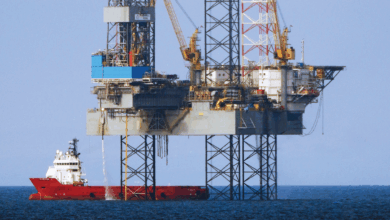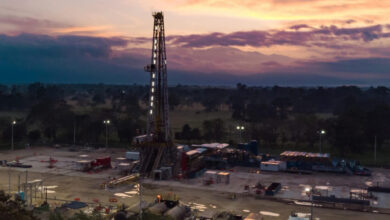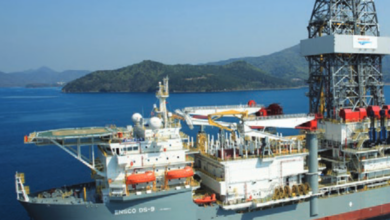Premier Oil’s MacLaurin: Industry can’t remain ambivalent about climate change

By Linda Hsieh, Managing Editor
Corporate responsibility is a must, not a luxury, and drilling contractors and operators must work together to align their thinking and messaging around safety and environmental protection, Phil MacLaurin, Country Manager for Premier Oil, said in a keynote address at the 2018 IADC Drilling HSE&T Asia Pacific Conference on 25 January in Ho Chi Minh City, Vietnam. “In our industry, effective environmental and safety management must always be paramount… The expectations of society are evolving. They are becoming more demanding and sophisticated.”
In particular, Mr MacLaurin urged the drilling industry to pay more attention to issues around climate change. “Premier Oil routinely and formally consults with our stakeholders, including peer oil companies, environmental agencies, key contractors and investment funders. And what they are telling us is simple: They are concerned about climate change. They want to know Premier Oil’s strategy, and they need to understand how the oil and gas sector is responding to that issue. In the public mind, our industry is inextricably linked with climate change.”
He acknowledged that many drilling contractors remain ambivalent about climate change and even noted that only 4% of Premier Oil’s greenhouse gas emissions stem from drilling activities, while the other 96% come from production. However, “irrespective of that and irrespective of our personal opinions, there’s an overwhelming reason not to be ambivalent, which is stakeholder assessments of our corporate responsibility performance,” Mr MacLaurin said. “I know that you may not have the biggest GHG footprint in the industry, but the public does not know that. Their confidence that the drilling contractors are responding to environmental concerns is important.”
Mr MacLaurin also urged drilling contractors to consider engaging not just its employees and clients but also the public, noting that it’s often the contractors’ drilling rigs that serve as the public face of the oil and gas industry. In fact, drilling contractors are already investing in technologies and equipment that will reduce nonproductive time and increase operational efficiency, which will in turn reduce emissions, so why not capitalize on these investments? “Raise awareness about the environment you are preserving,” he urged, noting that companies should be working to build the same awareness and pride within their workforce about environment protection as they did about safety. “You will create the best ambassadors your company can ever have.”
At Premier Oil, the company is already reporting its performance by reference to the United Nations sustainable development goals (SDGs), Mr MacLaurin said. The goals were adopted in 2015 with the aim of ending poverty, protecting the planet and ensuring prosperity for all. “The SDGs can provide a useful and powerful communication tool to provide our industry with a framework to inform stakeholders about our investments in sustainable developments. They ensure corporate responsibility is not a luxury. It is an essential link between our social environment performance and achievement of our financial and strategic objectives.”
For Premier Oil in Vietnam, Mr MacLaurin highlighted four SDGs as being particularly critical to its operations. The first, gender equality, is already reflected in Premier’s workforce, which is predominately female, “including many of my subsurface and engineering teams and almost all of my support functions.” The operator has also invested in developing a younger and more inclusive workforce, while localizing jobs at more senior levels, to provide decent work and economic growth. Reducing inequalities is another important strategy for managing employees, by providing access to opportunities through clearly defined roles, expectations, targets and development plans.
The fourth SDG, quality education, is also critical to Premier Oil in Vietnam. “Premier has long supported numerous projects that offer education to marginalized children and better facilities to mainstream students,” Mr MacLaurin said. “That not only benefits hundreds of young people but also demonstrates Premier Oil’s support of a key objective of the government of Vietnam outside our core cooperation of oil and gas. That is a considerable source of good will.”




